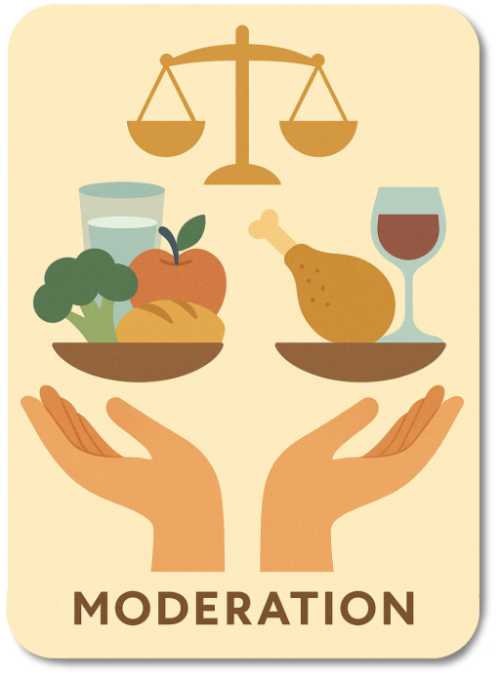Understanding Prostate Cancer
A Dual Perspective from TCM & Western Medicine
Prostate cancer is one of the most common malignancies affecting men, particularly those over the age of 50. While Western medicine has developed advanced diagnostic tools and treatment modalities, Traditional Chinese Medicine (TCM) offers complementary insights rooted in centuries of holistic observation. Combining both perspectives can provide a more comprehensive understanding and management of this condition.
Life After Diagnosis —
The Emotional and Lifestyle Impact
A prostate cancer diagnosis can stir up more than just medical concerns. For many men, it also brings deep emotional shifts and unexpected lifestyle changes:
• Emotional vulnerability: Even when prognosis is good, many men feel anxiety, fear, or anger. Some struggle with a sense of lost control or shame, especially if symptoms affect their independence or identity.
• Impact on relationships: Intimacy may be affected—physically or emotionally. Honest conversations and support from partners can make a real difference, but many men avoid discussing their feelings.
• Changes in routine: Frequent medical visits, fatigue, or urinary issues may alter daily habits. Adjusting work hours, sleep patterns, and physical activity is often necessary but may feel frustrating.
• A shift in self-image: Concerns about strength, sexuality, and aging can weigh heavily. TCM addresses these through gentle qigong, and herbs to support Kidney Qi, and emotional balancing treatments.
Healing goes beyond lab results. Emotional care, rest, and compassion, for self and others, are essential parts of recovery.
What is Prostate Cancer?
In Western medicine, prostate cancer originates in the prostate gland, a small walnut-shaped organ that produces seminal fluid. It is typically detected through elevated PSA (prostate-specific antigen) levels or a digital rectal exam. If diagnosed early, treatment options include active surveillance, surgery (prostatectomy), radiation therapy, hormone therapy, and chemotherapy.
Prostate cancer's progression can vary widely. Some cases grow slowly and may not require immediate treatment, while others are aggressive and spread quickly. According to the American Cancer Society, the 5-year relative survival rate for localized and regional prostate cancer is nearly 100%, while it drops to around 32% for distant metastatic cases. Mortality is more common in aggressive forms, but many men with prostate cancer live for years with a good quality of life. Risk factors include age, family history, race (with African American men at higher risk), and lifestyle factors like diet and obesity.
The TCM View: Patterns and Imbalances
In TCM, prostate cancer is not viewed as a singular disease but as a manifestation of systemic disharmony. It is often categorized under "Lin Zheng" (urination disorder), "Long Bi" (retention of urine), or "Shan Qi" (groin disorders).
Common TCM patterns associated with prostate issues include:
- Kidney Qi Deficiency: As men age, Kidney Qi naturally declines, weakening the body's vital functions, including reproductive and urinary systems.
- Damp-Heat in the Lower Jiao: This can lead to symptoms like frequent, urgent urination, burning sensation, and possibly infection.
- Blood Stasis: Obstruction of blood flow may result in pain, swelling, or masses.
TCM treatment aims to restore balance through herbal medicine, acupuncture, dietary therapy, and qigong. Herbs such as Huang Qin (Scutellaria), Bai Hua She She Cao (Oldenlandia), and Zhi Mu (Anemarrhena) are often used, though exact prescriptions depend on individual diagnosis. Acupuncture is frequently applied using specific points that target related meridians and organs. Commonly used acupoints include Ren-3 (Zhongji) and Ren-4 (Guanyuan) to tonify Kidney Qi and regulate the Lower Jiao, SP-6 (Sanyinjiao) to resolve Dampness, and BL-23 (Shenshu) to strengthen the Kidneys. These points may be combined with local and distal points based on symptom presentation and underlying patterns.
Integrating Both Approaches
Integrative care is increasingly recognized as a viable approach. Western medicine provides powerful tools for diagnosis and acute management, while TCM contributes to improving quality of life, reducing side effects, and enhancing overall resilience.
For instance, acupuncture may help alleviate side effects of hormone therapy, such as hot flashes and fatigue. Herbal treatments may support immune function or mitigate the impacts of radiation or chemotherapy, always under the guidance of trained professionals to avoid herb-drug interactions.
Lifestyle and Prevention
Both TCM and Western medicine stress the importance of prevention and lifestyle:
- Diet: A diet rich in vegetables, fruits, and low in red meat supports prostate health. TCM might recommend avoiding overly spicy or greasy foods to prevent Damp-Heat.
- Exercise: Regular activity promotes circulation and boosts immunity.
- Emotional Health: Stress management is crucial. In TCM, unbalanced emotions can disrupt the flow of Qi and contribute to disease.
Final Thoughts
Prostate cancer is a complex condition best managed through a collaborative approach. While Western medicine offers precision in diagnosis and treatment, TCM provides a personalized, holistic lens that considers the root causes of imbalance. By combining strengths from both systems, patients can achieve better outcomes and improved quality of life.
Vocabulary Guide
- Kidney Qi: Vital energy associated with the kidneys, governing growth, reproduction, and aging.
- Lower Jiao: The lower burner in TCM, encompassing the kidneys, bladder, and reproductive organs.
- Damp-Heat: A pathological condition marked by heat and moisture, often leading to inflammation and infection.
- Blood Stasis: Poor or obstructed blood flow, often causing pain or masses.
Always consult qualified healthcare providers before beginning any new treatment regimen.



